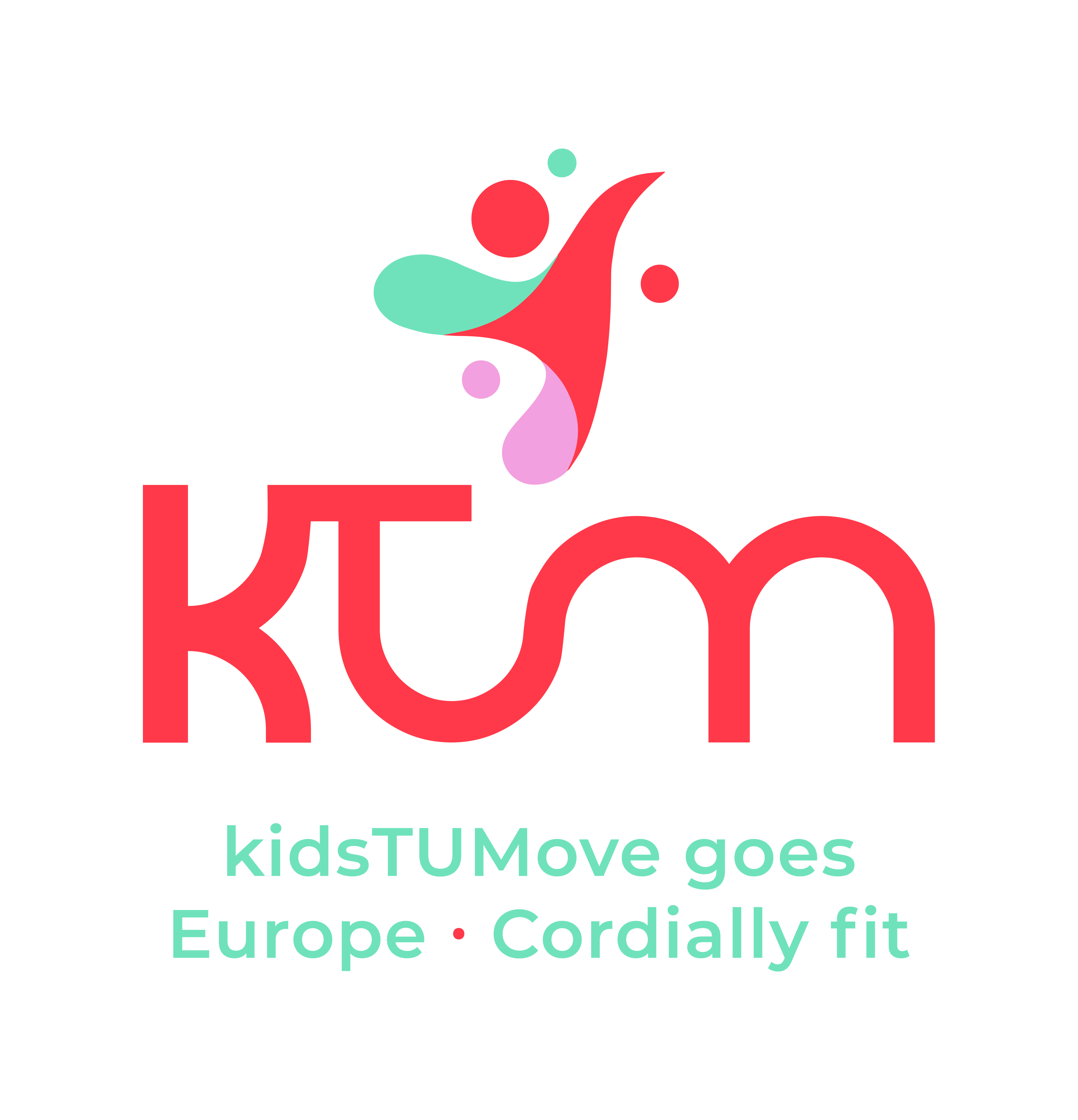At the beginning of 2024, the KTM consortium performed a brief survey to better understand the status quo of trainers working with children with chronic diseases in Europe and gather trainers’ opinions on this topic. It is with great excitement that we share this experience and its results with you!
The survey was created with a focus on characterizing the profile of trainers (e.g. experience), the main activities developed (e.g. frequency, type of activities), and the goals and perceived benefits and barriers of their developed activities for children with chronic diseases. This information allows for a better understanding of not only the conditions trainers face, but also their interests and main lines of activities and will support us in the development of the KTM trainer manual.
Who were the participating trainers?
The survey counted the participation of 86 trainers from Germany (48.8%), Greece (23.3%), Spain (1.2%), Portugal (7%), Italy (18.6%) and Switzerland (1.2%). The majority of trainers responding to the survey had 5-10 years of experience (36%), followed by less than 5 years of experience (27.9%). Furthermore, most trainers had a master (43%) or bachelor (32.6%) degree, with 80.2% being in sports. However, only 32.6% reported having a specialization in working with children with chronic diseases. This shows that although most trainers have higher education specialized in sports, there seems to be a lack of specific training in sports for children with chronic diseases.
What kind of sports programs did they offer?
Sports programs developed by the trainers participating in the survey embarked children and teenagers of all ages and offered different kinds of activities, being the most common team sports (60.5%), individual sports (51.2%) and outdoor activities (30.2%). Most programs had training sessions once a week (39.5%) or 2-3 times per week (20.9%) and integrated group games and dynamics (81.4%), flexibility and mobility exercises (64%), strength and conditioning exercises (55.8%), functional training (52.3%), as well as sensory integration activities (52.3%).
What strategies did they use?
Training children with chronic diseases may be challenging in several different aspects, such as managing the disease, knowing when to push or hold back intensity, motivating the children or adapting exercises. Coaches in the survey reported relying mainly on strategies like positive reinforcement and encouragement (76.7%), sensitivity and empathy (68.6%), communication and support (55.8%) and flexibility and adaptability training organization (51.2%) to help them dealing with these challenges. On the other hand, only about 1 in 4 trainers referred collaborating with healthcare professionals (23.3%), using adaptive equipment and assistive devices (24.4%) and monitoring progress and reassessment (23.3%). In order to have a safe approach to training it is important to foster communication between health and exercise professionals, this seems to be one of the aspects that need future attention.
What are the perceived benefits and barriers of sports for children with chronic disease?
According to the trainers, the most important aspects for children to participate in sports programs are having fun (82.6%), feeling good about themselves and building their self-esteem (74.4%), while what parents value most is promoting lifelong health (48.8%), improving physical skills (45.3%), getting psychological benefits (43%) and above all improving self-esteem (54.7%).
On the opposite of the spectrum, the main barriers for parents encouraging their children practicing sports, as reported by trainers, are lack of information (75.6%), safety concerns (66.3%), time and energy constraints (57%), and fear of judgment or exclusion (53.5%).
What’s next?
The KTM trainer survey was an important step in building a better understanding of the trainers’ perspectives and for the development of the trainer manual. If you are curious to learn more about the trainer survey you can explore more in-depth results in the KTM manual.
Keep up to date with the project by following KTM’s social channels Instagram, Facebook and X !

